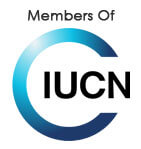Water Pollution
Water pollution caused industrial waste products released into lakes, rivers, and other water bodies, has made marine life no longer hospitable. Humans pollute water with large scale disposal of garbage, flowers, ashes and other household waste. In many rural areas one can still find people bathing and cooking in the same water, making it incredibly filthy. Acid rain further adds to water pollution in the water. In addition to these, thermal pollution and the depletion of dissolved oxygen aggravate the already worsened condition of the water bodies. Water pollution can also indirectly occur as an offshoot of soil pollution – through surface runoff and leaching to groundwater.
Source of Water Pollution
1. Drain water containing faces, urine and other pollutants,
2. Water containing chemicals insecticides and manures washed out the field can pollute the water of river, lakes, ponds, wells etc.,
3. Physical pollution such as heat and ionic radiation,
4. Effluents from the factories,
5. Minerals above a certain level in the soil, or present in the parent rocks, can mix with water and pollution occurs, such as arsenic.
Reduce Water Pollution
1. DO NOT pour fat from cooking or any other type of fat, oil, or grease down the sink. Keep a "fat jar" under the sink to collect the fat and discard in the solid waste when full.
2. DO NOT dispose of household chemicals or cleaning agents down the sink or toilet. Simsbury has a Hazardous Waste Collection day usually from 8:00am to 1:00pm at Henry James School. Connecticut Resource Recovery Authority lists all collection dates.
3. DO NOT flush pills, liquid or powder medications or drugs down the toilet. For recommendations on proper disposal for all types of medical wastes, visit the CT DEP publication here.
4. Avoid using the toilet as a wastebasket. Most tissues, wrappers, dust cloths, and other paper goods should be properly discarded in a wastebasket. The fiber reinforced cleaning products that have become popular should never be discarded in the toilet.
5. Avoid using a garbage disposal. Keep solid wastes solid. Make a compost pile from vegetable scraps.
6. Install a water efficient toilet. In the meantime, put a brick or 1/2 gal container in the standard toilet tank to reduce water use per flush.
7. Run the dishwasher or clothes washer only when you have a full load. This conserves electricity and water.
8. Use the minimum amount of detergent and/or bleach when you are washing clothes or dishes. Use only phosphate free soaps and detergents.
9. Minimize the use of pesticides, herbicides, fertilizers. DO NOT dispose of these chemicals, motor oil, or other automotive fluids into the sanitary sewer or storm sewer systems. Both of them end at the river.
10. If your home has a sump pump or cellar drain, make certain it does not drain into the sanitary sewer system. If you are unsure, please call Simsbury Water Pollution Control at (860) 658-1380 and we can assist in determining the discharge point.
Industrial Activities: The industries all over the world that brought prosperity and affluence, made inroads in the biosphere and disturbed the ecological balances. The pall of smoke, the swirling gases, industrial effluents and the fall-out of scientific experiments became constant health hazards, polluting and contaminating both air and water. The improper disposal of industrial wastes are the sources of soil and water pollution. Chemical waste resulting from industry can pollute lakes, rivers and seas and soil too as well as releasing fumes.



